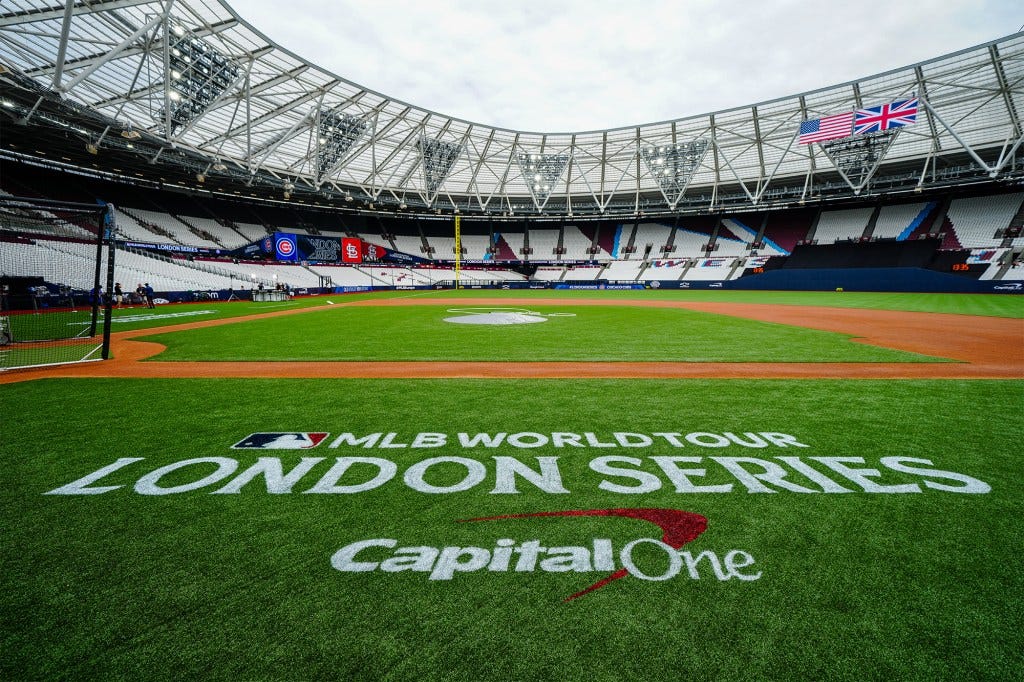'We're closed, mate': Assessing MLB's chances in the U.K.
What I learned watching the Phillies and Premier League in London
Some people sightsee on vacation or retreat to a beach or go to Iceland. I make sure I am within walking distance of a bar that shows baseball, like Passyunk Avenue under London’s Waterloo station. It was impossible to catch the Philadelphia Phillies’ weeknight games against the Blue Jays, with my being five hours ahead of Toronto, so I anti…




